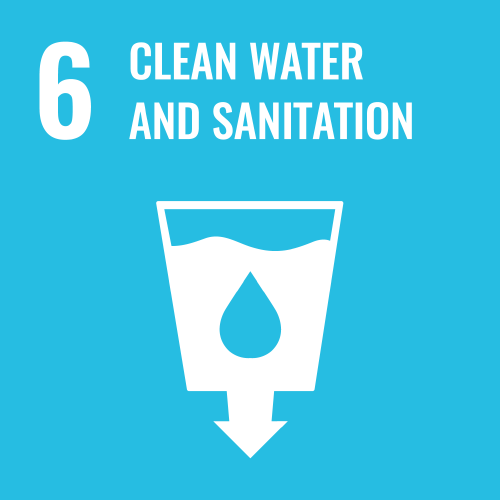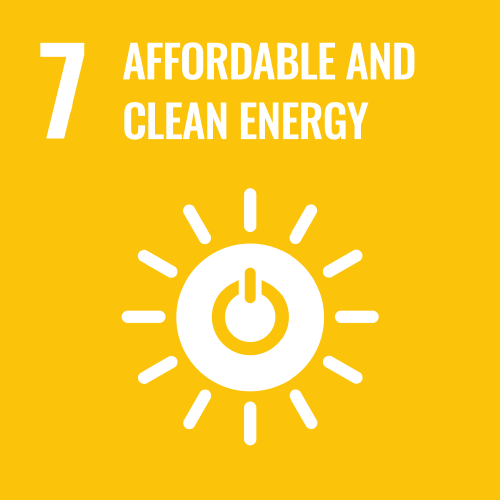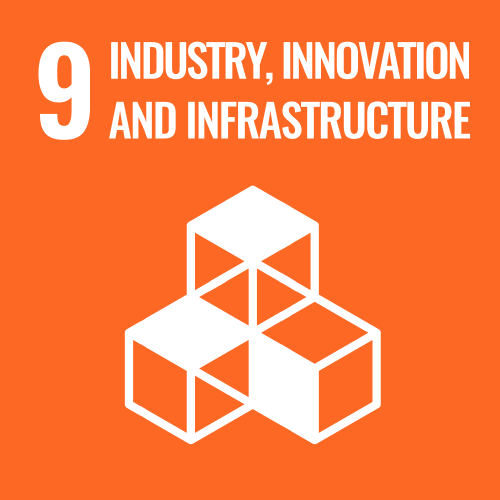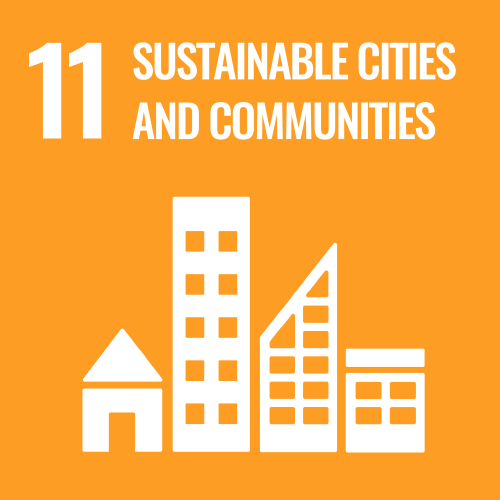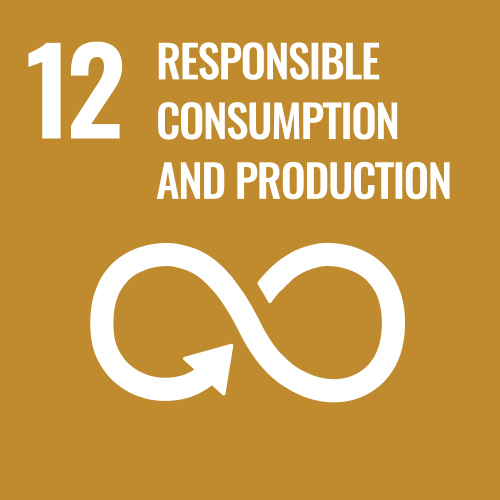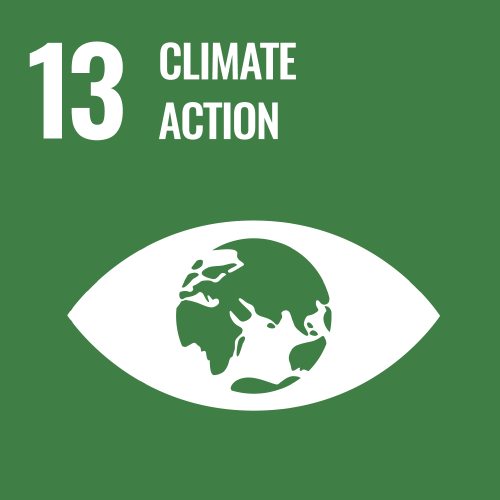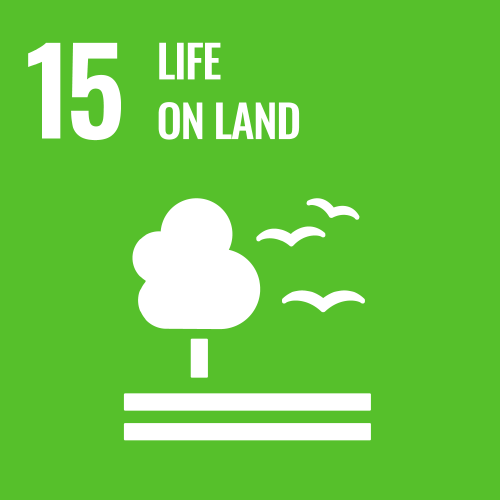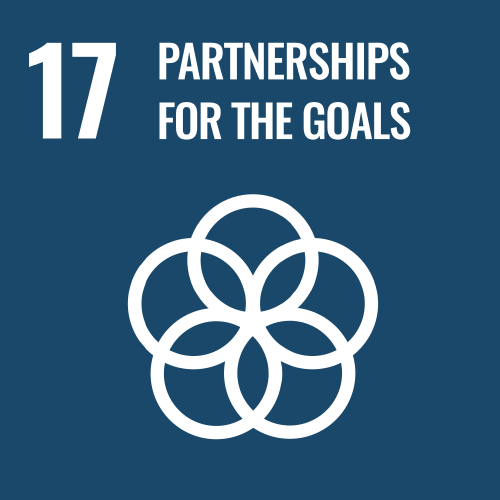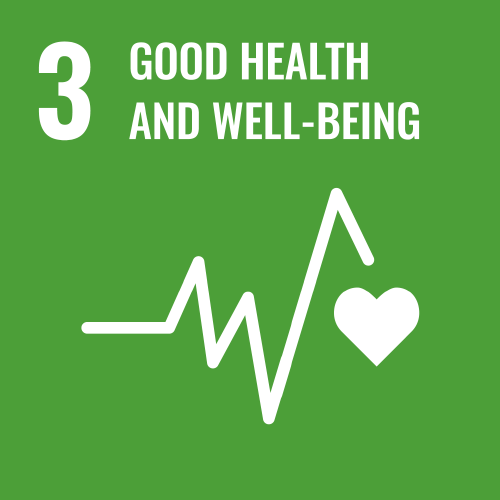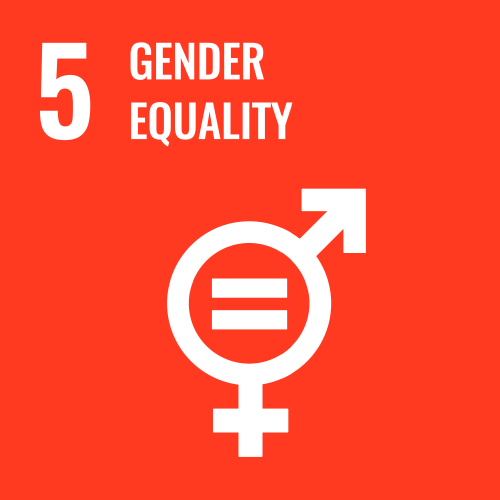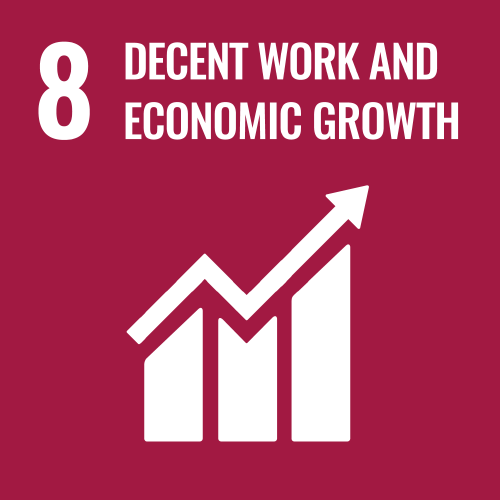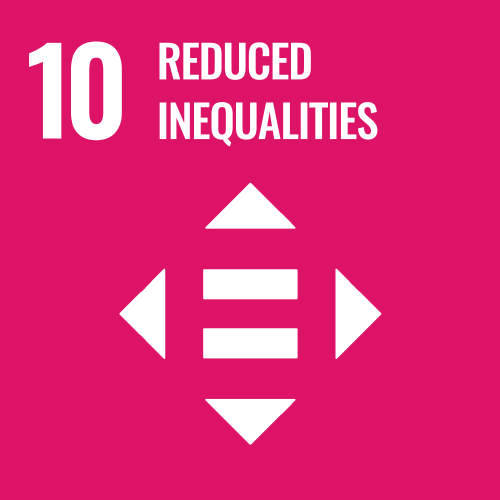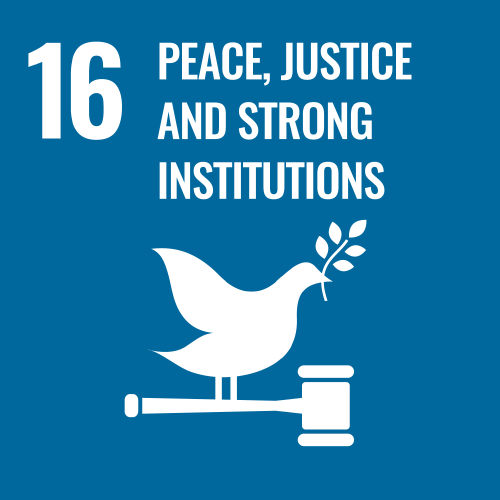Sustainability objectives
Environmental, Social, and Governance Objectives
Our aim is to satisfy the growing demand for energy and products by maximizing our contribution to sustainable development, in order to meet current needs without compromising the needs of future generations, with a commitment to become a net zero emissions company by 2050 in line with the objectives of the Paris Agreement, as established in our Sustainability Policy.
To achieve this, we define Environmental, Social and Governance objectives, which we report annually in the Global Sustainability Plan and which reflect our commitment to the sustainable development of society and the areas where we carry out our activities.
-
Environment 40 objectives
-
Social 27 objectives
-
Governance 11 objectives
-
Climate change
- 2025 objectives
- 2027 objectives
- 2030 objectives
- 2024 objectives achieved
- Achieve a total reduction of 1.5 million tons of CO2 eq in the Refining Spain, Refining Peru, and Chemicals businesses and in the assets that we operate in Exploration and Production.
- Reduce routine flaring by 50% in the operated assets of the Upstream business compared to 2018 (the first year segregated data is available).
- Reduce methane intensity by up to 0.20% in the operated assets of Exploration and Production.
- Reach the Gold Standard level for OGMP 2.0 (Oil and Gas Methane Partnership) requirements in non-operated assets.
- Reduce the carbon intensity indicator by 15% compared to 2016.
- Increase self-consumption photovoltaic installations nationwide, boosting renewable energy consumption among both small and large businesses.
- Install publicly accessible charging infrastructure for electric vehicles, both at service stations and other locations.
- Increase gross renewable energy generation capacity to more than 9 GW.
- Achieve an equivalent renewable hydrogen production capacity in the iberian peninsula of more than 0.5 GW.
- Reduce the carbon intensity indicator by 28% compared to 2016.
- Reduce absolute emissions by 55% (Scope 1 and 2) in the company’s operated assets compared to 2016.
- Reduce the company’s absolute emissions by 20% (Scope 1, 2, and 3) compared to 2018.
- Achieve an equivalent renewable hydrogen production capacity in the iberian peninsula of more than 1.6 GW.
- Increase gross renewable energy generation capacity to more than 15 GW.
- Achieved a 13% reduction in the Carbon Intensity Indicator with respect to 2016.
- Achieved a 45% reduction in absolute Scope I and 2 emissions compared to 2016 due to portfolio optimization in operated assets.
- Routine flaring reduced by 72% compared to 2018.
- Accomplished 0.12% methane intensity (volume of CH4 emitted / volume of gas produced). Achieved the Gold Standard of the Oil & Gas Methane Partnership (OGMP) for operated assets.
- 3.7 GW of installed renewable energy reached.
- Availability of 579 self-consumption photovoltaic installations (355 individual self-consumption and 224 collective self-consumption).
- Availability of 2,840 electric vehicle charging points, 2,600 in Spain and 240 in Portugal (more than 1,500 for fast and ultra-fast charging).
-
Circular economy
- 2025 objectives
- 2027 objectives
- 2029 objectives
- 2030 objectives
- 2024 objectives achieved
- Sell 45,000 tons of circular or bio-based products.
- Adapt the production units of the Spanish refineries (A Coruña, Petronor, Tarragona, Puertollano, and Cartagena) with the aim of consolidating the SAF (sustainable aviation fuel) production capacity.
- Establish a waste supply platform involving key stakeholders in the value chain to ensure compliance with the designated renewable fuel production pathway.
- Conduct a test at the Tarragona Industrial Complex to produce a batch of 5,000 tons of renewable gasoline.
- Achieve a renewable fuel production capacity of more than 1.5 million tons on the iberian peninsula.
- Achieve a biomethane production capacity from organic waste of more than 1.3 TWh.
- Achieve a production volume of more than 65,000 tons of circular or bio-based products.
- Build and commission the first gasification plant in Tarragona (Ecoplanta). It will convert municipal waste into circular methanol and biomethanol to produce renewable fuels and circular materials.
- Achieve renewable fuel production capacity in the iberian peninsula of more than 2.2 million tons.
- Increase the sale of renewable fuels in the aviation business and in the service station business.
- Achieve a production volume of more than 150,000 tons of circular or bio-based products.
- Achieve biomethane production capacity from organic waste of more than 2.1 TWh.
- Promote the circular economy with the recovery of used cooking oil at our service stations.
- 100% renewable fuels produced on a large scale at the Cartagena plant: 150,000 tons of HVO (renewable diesel) and SAF (sustainable aviation fuel).
- 11,000 tons of polyolefins sold from the Reciclex® range of circular or bio-based products.
- Petronor's desulfurization unit has been adapted to begin producing biojet in 2025.
- Used oil collection has been implemented at Repsol service stations in the autonomous communities of Madrid, Galicia, and Castilla-La Mancha.
- We have increased the sales of renewable fuels: 42,500 m3 of sustainable aviation fuel (SAF) and the availability of renewable diesel at 800 service stations.
- The 40% stake agreement was signed in Genia Bionenergy for the development, design, and construction of biomethane plants.
-
Biodiversity
- 2025 objectives
- 2026 objectives
- 2029 objectives
- 2024 objectives achieved
- Digitalize biodiversity and natural capital indicators to respond to new reporting frameworks.
- Quantify and assess environmental impacts and dependencies under natural capital criteria, undertaking pilot projects at the company’s main businesses.
- Report in accordance with the recommendations of the Taskforce on Nature-Related Financial Disclosures (TNFD).
- Promote and implement biodiversity management initiatives to support at least three protected species at our wind and solar farms in Spain.
- Prevent species mortality at the Torina and Urdón hydropower plants by covering bypass channels.
- We collaborate with international working groups, such as IPIECA, focusing on reporting in accordance with the European CSRD directive and on issues related to biodiversity and natural capital.
- We have developed a GIS (Geographic Information Systems) platform to calculate indicators related to the location of the company's facilities in relation to Protected Natural Areas and Endangered Species.
- We have conducted a pilot project using the TNFD's LEAP approach to quantify and assess environmental impacts and dependencies using natural capital criteria.
- We have continued species protection initiatives such as the scavenger bird project, the Bonelli's eagle project, and the Montagu's harrier campaign.
-
Water
- 2025 objectives
- 2035 objectives
- 2024 objectives achieved
- Update the Repsol Water Tool as part of the ongoing improvement process for water materiality analysis.
- Move forward with the commitment made to the UN CEO Water Mandate initiative by reporting on initiatives in the identified areas of the Water Action Hub’s 100 priority river basins with water stress.
- Achieve a 30% reduction in freshwater withdrawal for the Industrial business facilities located on the iberian peninsula, compared to the 2022 baseline.
- Achieve net zero freshwater withdrawal by 2035 (compared to the 2022 baseline and planning), at the Marcellus (US) asset of the Exploration and Production business.
- We conducted a water footprint study at the Cartagena refinery, taking into account different scenarios for the Water Zero project.
- We analyzed 100 priority watersheds facing water stress within the CEO Water Mandate.
- We have achieved a 39 hm3 reduction in freshwater withdrawal from the environment at our industrial complexes on the peninsula compared to the baseline of 44.3 hm3.
- We have achieved a 0.56 hm3 reduction in freshwater withdrawal from the environment compared to the baseline of 1.7 hm3 in the Marcellus asset of the Exploration and Production business.
-
Pollution
- 2025 objectives
- Define action plans for soil and groundwater management and remediation in the event of contamination, doing so in a timeframe of less than 12 months.
-
Supply chain
- 2025 objectives
- 2030 objectives
- 2024 objectives achieved
- Promote the integration of safety and environmental criteria in supplier management and in all contracts for goods and services with high safety and environmental risk.
- Ensure the participation of our contractors in the Safety Excellence Program.
- Strengthen sustainability best practices in the low-carbon supply chain by measuring environmental, social, and governance management.
- Train and raise awareness about sustainability among those involved in the purchasing and contracting processes.
- Deploy a global supply chain risk management model that will address ESG risks and comply with European sustainability due diligence standards.
- Promote the gradual decarbonization of the supply chain.
- We’ve strengthened the supplier management process before and during the contracting process.
- We’ve begun integrating decarbonization criteria into the purchasing processes with the greatest impact on carbon footprint by incorporating specific clauses.
- We’ve developed activities with key contractors in the area of safety, resulting in proposals for specific lines of action.
- We’ve invited more than 800 suppliers to the Sustainable Supplier Training Program, with around 100 small and medium-sized businesses enrolling.
- 88% of purchasing employees have completed a training program with content on compliance (conflict of interest management) and energy transition.
- The detailed design of the social risk management and compliance model (including integrity and international sanctions) has been completed.
-
Employees
- 2025 objectives
- 2030 objectives
- 2024 objectives achieved
- Anticipate the organization’s key requirements for talent through strategic planning in order to meet future goals and commitments.
- Offer training pathways and support programs in strategic disciplines for the transformation of the company.
- Go beyond the legal requirements in terms of hiring people with disabilities in the organization in the countries where we operate.
- Update job definitions and the associated skills, including the impact of new technologies.
- Further develop the comprehensive health and wellness proposition through advanced analytical techniques so as to tailor it to each employee.
- Be a company recognized as a leading employer in the sectors in which we do business in order to attract, retain, and gain loyalty among key talent and, thus, develop the strategy.
- Achieve gender representation at all levels of the organization equivalent to the company’s overall representation.
- Attain a consolidated culture of inclusivity based on the principle of equity and non-discrimination.
- Implement the comprehensive health and wellness program in all countries, adapting it to local needs.
- We’ve updated the organization's job catalog, with a cross-cutting and homogeneous perspective, and also added the competency map in the digital field.
- The number of employees with telework reached 7,137.
- We’ve achieved the goals of parity in hiring (45%) and women in leadership positions (34%), and organized the Repsol Digital Girls program that promotes female talent in STEM professions.
- We’ve employed 498 people with disabilities, exceeding legal requirements.
- We’ve provided unconscious bias training to more than 400 employees across various areas of the company.
- We’ve implemented the use of artificial intelligence in our medical centers in Spain to provide information and personalize medical consultations.
-
Human rights
- 2025 objectives
- 2026 objectives
- 2024 objectives achieved
- Transfer the social management process implemented in Spain’s renewable energy projects to low-carbon generation assets in the United States.
- Be in the first quartile of performance during the 2021-2025 period in accordance with Corporate Human Rights Benchmarking (CHRB).
- Adapt the company’s regulatory framework and processes to the new regulations in human rights due diligence.
- Optimize the company’s social investment with the aim of maximizing the positive social impact of these projects.
- Contribute to the 2030 Agenda through our social projects, benefiting 200,000 people from communities within our operations’ area of influence by 2025.
- Implement social management plans in at least three wind farms and three solar farms in Spain.
- We’ve updated the publication "Human Rights and Repsol" to show practical examples from different projects and countries.
- We continue to hold first place in the CHRB among the 237 companies evaluated in the mining, textile, automotive, information technology, and agri-food sectors.
- We’ve benefited nearly two million people through 428 social investment projects.
- We’ve implemented local development plans for three solar assets and two wind farms in operation, enhancing competencies and skills through related training.
-
Industrial safety
- 2025 objectives
- 2024 objectives achieved
- Practice clear, proactive, systematic safety leadership at all levels of the organization.
- Continue to make progress with regard to improving human performance and taking the human factor into account in safety processes.
- Promote organizational learning mechanisms in the field of safety.
- Strengthen the organization’s preparation and training in crisis and emergency management.
- We’ve launched the Repsol Learning Platform, which consolidates safety information by business and increases the possibilities for sharing and analyzing relevant information.
- Commissioning of “OpenEyes,” a proprietary application that facilitates the performance and recording of safety self-diagnostics.
- We conducted the annual Crisis Management Team (the highest crisis and emergency management body) simulation focused on a hypothetical oil spill on the Casablanca platform in Tarragona.
- Safety Leadership Manuals have been issued in Upstream and Engineering businesses, accompanied by specific training and reinforcement events.
- We have collaborated with IOGP on its Human Performance Framework to integrate human factors (HF) into management.
-
Product safety
- 2025 objectives
- Have an absence of high-severity incidents in relation to the safety of the products sold by Repsol.
-
Cyber-security
- 2026 objectives
- 2024 objectives achieved
- Keep our cybersecurity capabilities up to date to mitigate the risk of business interruption due to a cyber attack.
- Keep our capabilities up to date to mitigate the risk of a cyber incident in critical infrastructure.
- Keep our employee and organizational capabilities up to date to achieve cybersecurity goals and reduce the time and effort required to do so.
- We’ve made progress in detection and response capabilities and in the deployment of the SASE (Secure Access Service Edge) cloud architecture.
- Cyberattack mitigation initiatives on critical infrastructure have been completed.
- Mitigation actions for cybersecurity breaches have been completed.
- We’ve developed a user experience impact assessment for cybersecurity projects.
-
Digitalization
- 2027 objectives
- 2024 objectives achieved
- Ensure that 70% of the investment in the digital program initiatives is oriented toward “drivers or facilitators of decarbonization,” in accordance with the new digital project assessment methodology.
- We have implemented awareness-raising and training initiatives for 30% of project teams to advance the integration of decarbonization into digital projects.
-
Technology and Corporate venturing
- 2025 objectives
- 2027 objectives
- 2024 objectives achieved
- Develop, optimize, and validate the Plastics2Olefins technology on a pilot scale at Tech Lab’s test facilities.
- Promote four proofs of concept at the All4Zero innovation hub to act as a catalyst for the decarbonization of other sectors.
- Develop a demo vehicle with fuel consumption of less than 3.3 L/100 km, proving that the combination of a thermal vehicle and renewable fuel is an efficient, viable, and competitive option.
- Present the first voluntary report on Repsol’s Corporate Venture Capital portfolio indicators to the United Nations Principles for Responsible Investment (UNPRI).
- Maintain 65% alignment with sustainability when investing in technology projects.
- We adhere to the Principles for Responsible Investment (PRI).
- We’ve developed tools to evaluate the ESG performance of our portfolio.
- We've conducted eight proofs of concept through IdeAction with technology centers, startups, and companies to validate technologies in low-carbon processes, the circular economy, and artificial intelligence.
- We’ve invested in three startups: Ingelia (circular economy), Cardinalops (cybersecurity), and Darwin (biotechnology).
- We’ve participated in the Madrid Vuela Sostenible consortium.
- We’ve experimentally validated and optimized the pyrolysis and condensation stages of the Plastics2Olefins technology at pilot plant scale.
- In technology and corporate venturing, we have achieved a 65% investment in sustainability-aligned projects.
-
Fiscal transparency
- 2025 objectives
- 2024 objectives achieved
- Eliminate presence in OECD/EU non-cooperative jurisdictions and streamline the corporate structure.
- Continue to show leadership in tax governance best practices, such as tax transparency and validation of the GRI-207 standard, as well as the requirements of the CSRD reporting directive.
- Encourage cooperative relations with tax authorities, presenting the voluntary transparency report (VTTR) and actively participating in forums.
- We’ve eliminated 15 redundant companies from Repsol's corporate perimeter, located in five jurisdictions.
- We’ve maintained our leadership in tax governance best practices, recognized by our stakeholders (Haz Foundation, EU Tax Observatory, and the Fair Tax Foundation). We’ve obtained validation of our GRI-207 compliance from an external auditor.
- We’ve presented the VTTR 2023 in Spain for the 9th consecutive year, participated in the CONFIA pilot program in Brazil and Singapore, and Repsol Trading has been accepted into the Tax Governance Framework, among others.
-
Good governance
- 2025 objectives
- 2024 objectives achieved
- The Board of Directors will continue to promote the company’s sustainability by incorporating the best available practices.
- Consultative approval of Repsol's energy transition strategy by the 2024 General Shareholders' Meeting, with 70% of the votes in favor.
-
Anti-corruption and fair competition
- 2026 objectives
- 2030 objectives
- 2024 objectives achieved
- Prevent and identify risks involving integrity (corruption, money laundering, fraud, etc.) in commercial transactions and/or business with third parties of interest to the company.
- Digitalize compliance processes using industry-leading practices.
- Strive to foster excellence in the compliance models of our third-party partners and investee companies
- Deploy an integrated and streamlined management model to handle compliance risk management across various countries.
- We’ve prepared integrity reports for third parties with which the company will be associated.
- We’ve digitalized our compliance risk processes, aligning them with industry-leading practices.
- The compliance model for our third parties and affiliated companies has been promoted.
- We’ve implemented the compliance risk management model at the country level.
If you'd like to know more about our objectives, check out our Sustainability Plans
See more information on sustainability
See more information on sustainability
